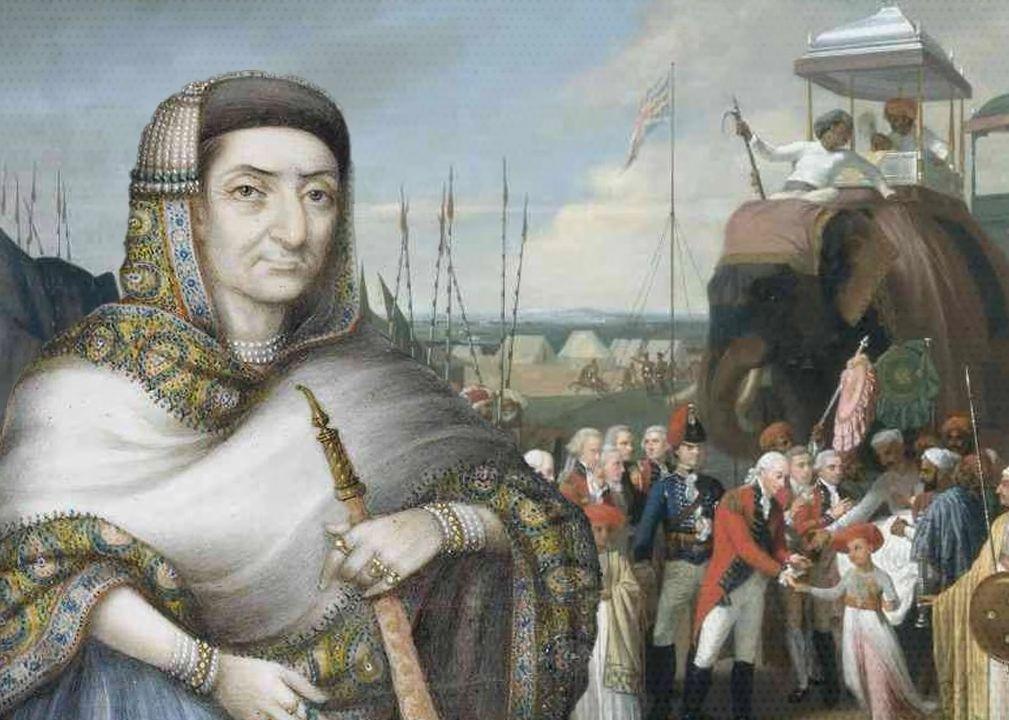
Women Entrepreneurs in Indian History: Begum Samru & Jibhabu
In a society where women’s roles were largely confined to domestic duties, two remarkable women, Begum Samru and Jibhabu, defied conventional norms by excelling in the male-dominated world of entrepreneurship. These pioneering women, who lived in the 18th and 19th centuries, not only demonstrated their financial acumen but also showcased their strategic leadership skills, leaving a lasting impact on Indian history.
Begum Samru – The Diplomatic Ruler
Born as Imhoff Sahib in 1753, Begum Samru was a German woman who rose to prominence in India during the 18th century. She was married to Walter Reinhardt Sombre, a French officer, and after his death, she inherited his estate in Sardhana, Uttar Pradesh. The estate, which covered an area of 621 square kilometers, was a significant prize, given its strategic location and fertile soil.
However, Begum Samru faced opposition from the Nawab of Oudh, who sought to annex her estate. Instead of resorting to violence, she employed her exceptional diplomatic skills to negotiate with the Nawab and maintain control over her estate. Her diplomatic efforts were so successful that she was able to secure a treaty, which recognized her independence and sovereignty over Sardhana.
Begum Samru’s entrepreneurial spirit was evident in her ability to manage her estate efficiently. She implemented innovative agricultural practices, which increased crop yields and boosted the local economy. She also established a thriving trade network, which connected her estate to the rest of India and beyond.
Jibhabu – The Negotiator
Born in the 18th century in Gujarat, Jibhabu was a member of the Patel community, known for their entrepreneurial spirit. She was the daughter of a rich merchant and was trained in the family business from a young age. Jibhabu’s family was involved in the lucrative land revenue business, but their fortunes began to decline in the early 19th century due to the increasing influence of the East India Company.
Determined to restore her family’s business, Jibhabu embarked on a mission to negotiate with the East India Company. She traveled to Bombay (now Mumbai) and met with the company’s officials, showcasing her exceptional negotiating skills and business acumen. Her efforts were successful, and the East India Company agreed to partner with her family’s business, reviving their fortunes.
Jibhabu’s entrepreneurial success was not limited to her family’s business. She also invested in other ventures, including a textile mill and a banking business. Her financial expertise and strategic leadership skills enabled her to expand her business empire, making her one of the wealthiest women in Gujarat.
Legacy of Begum Samru and Jibhabu
Begum Samru and Jibhabu’s stories serve as a testament to the entrepreneurial spirit of women in India’s past. Despite facing numerous challenges and societal barriers, these women defied convention and achieved greatness through their financial expertise and strategic leadership.
Their legacies extend beyond their individual achievements. They paved the way for future generations of women entrepreneurs, inspiring them to pursue their dreams and challenge societal norms. Begum Samru’s diplomatic skills and Jibhabu’s negotiating abilities demonstrate that women can be effective leaders in male-dominated fields.
In recent years, there has been a growing recognition of the importance of women’s contributions to India’s economic growth. The government has implemented several initiatives to promote women’s entrepreneurship, including programs to provide training and funding to women-led businesses.
As we continue to celebrate the achievements of women entrepreneurs like Begum Samru and Jibhabu, we are reminded of the critical role that women play in driving economic growth and social change. Their stories serve as a powerful reminder of the importance of inclusivity and diversity in our society, and the impact that women can have when given the opportunity to excel.
Source:
https://ascendants.in/business-stories/pioneering-women-entrepreneurs-history/






